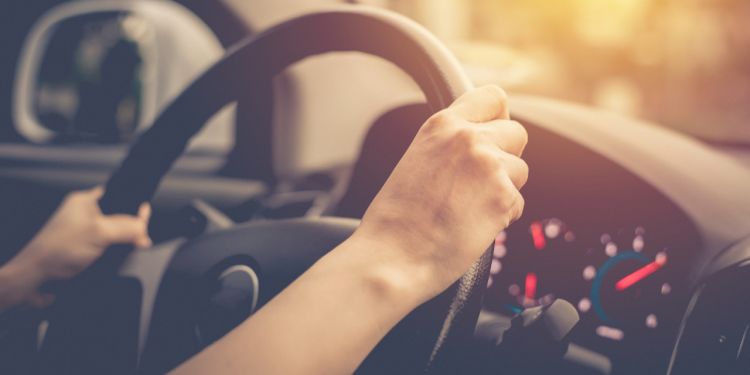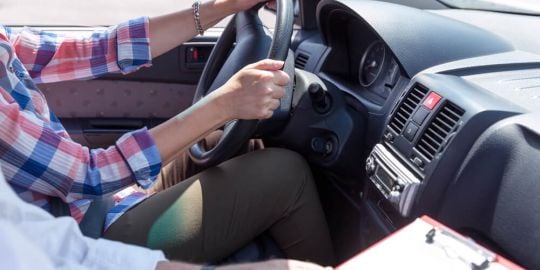Driving in the United Arab Emirates

Driving is the most popular way of getting around in the UAE — especially in big emirates like Dubai and Abu Dhabi. To drive in the UAE as an expat, you will need to be in possession of an international driving license or an Emirati driver's license. Depending on the country your licence is from, you may be able to convert it and drive in the UAE.
If you are from a country whose nationals are not eligible to convert their license, you need to apply for a new one.
In addition to having a valid driver's license, it is also essential to be aware of all the driving rules and regulations in the UAE. Keep in mind that the UAE is a Muslim country; therefore, driving under the influence of alcohol, no matter how small your consumption, is a serious offense.
Roads are fitted with cameras and radars, so take extra caution when it comes to speeding. Hefty fines are slapped for those who do not abide by this driving regulation.
How to convert your driver's license in the UAE?
If you come from the following countries, you can convert your license from your country to the UAE, but you must obtain a translation of your driver's license or a certificate from your consulate:
Australia, Austria, Bahrain, Belgium, Canada, Denmark, Finland, France, Germany, Greece, Hong Kong, Ireland, Italy, Japan, Kuwait, Netherlands, New Zealand, Norway, Oman, Poland, Portugal, Qatar, Romania, Saudi Arabia, South Africa, South Korea, Spain, Sweden, Switzerland, Turkey, United Kingdom, and the United States of America.
Holders of driver's licenses from the following countries are also able to convert their driver's license for “light vehicle” only (vehicles up to 2.5 tons) on the condition that they are nationals of that country:
Albania, Azerbaijan, Bulgaria, China, Cyprus, Estonia, Greece, Hungary, Iceland, Israel, Latvia, Lithuania, Luxembourg, Malta, Montenegro, Portugal, Serbia, Singapore, Slovakia, Slovenia, and Ukraine.
Some countries require translation of the existing license into either Arabic or English by your embassy or a legally approved translation agent. These would be:
Azerbaijan, Bulgaria, China, Cyprus, Estonia, Greece, Hong Kong, Hungary, Iceland, Israel, Japan, Latvia, Lithuania, Luxembourg, Malta, Montenegro, Portugal, Serbia, Slovakia, Slovenia, South Korea, and Ukraine.
If you are from Canada, you will need a driver's license authentication letter issued by the Canadian consulate in the United Arab Emirates.
To convert your foreign driver's license, you are required to produce the following:
- your original valid Emirates ID;
- a copy of your resident permit (original and copy);
- your original driver's license; and, if applicable, an Arabic/English translation or a letter issued by your home country's consulate;
- five passport-size identity photos;
- an eye test;
- a no-objection letter (in English and Arabic) issued by your sponsor/employer.
You are advised to contact the Roads and Transport Authority (RTA) to check for the fees as well as the requirements as these vary among the different Emirates. In some emirates, your driver's license may not be recognised.
It should be noted that depending on your nationality, there may be a requirement to withdraw your foreign licence in exchange for the UAE one.
Taking driving lessons in the UAE
If you have no driving background and need to start from zero, you can apply to a registered driving institute in your emirate. Firstly, you will need to attend classes (both actual and lectures) and pass all the required tests (including parking, highway, and road). After finishing all the requirements and passing all tests, you are granted a driving license.
Here are the officially registered driving centers in the UAE:
Abu Dhabi:
Dubai:
Sharjah:
Ras Al Khaimah:
Ras Al Khaima Road and Traffic Academy
Fujairah:
Fujairah National Driving Institute
Good to know:
Driver's licences issued by the Gulf Cooperation Councils (GCC) are still recognised by the United Arab Emirates. GCC driver's licence holders only require a UAE driver's licence if they plan to rent a car. Purchasing a car can be done with the GCC driver's licence.
You are required to fill in the transfer form for a licence at the nearest Traffic Department Driving License Section. Fees will apply. After that, you should receive your new licence for use within the United Arab Emirates.
If your country is not listed above, your licence will not be able to be converted. Therefore, you will be required to take classes and pass the tests before being issued a licence. The number of classes you need to take will vary depending on the validity of your current licence.
How to get a new driver's licence in the UAE
If you do not have a driver's licence yet, you may apply for one in the United Arab Emirates. This will be in the emirate you're residing in. You have to go to a driving school and take a minimum of 40 classes. Once you pass all the tests, including the RTA test, you will be issued a driver's licence. The fees are around AED 5,500 for the classes and tests.
Good to know:
To be eligible for a driver's license, you must be at least 18 years old. Some car rental companies may refuse to rent a car if you are younger than 21 years old. It's also important to know that most rental companies will only rent to you if you have had your license for at least 2 years. Some companies will accept proof of this from your foreign license if you have it on hand.
Traffic regulations in the UAE
The United Arab Emirates government has fixed heavy penalties against certain offenses on the road, especially for driving under the influence of alcohol. You might have to pay fines, and you can even be jailed if you test positive for a breathalyzer test. Note that the use of mobile phones, getting dressed in your vehicle, and applying makeup while driving is also prohibited. Also, note that your driver's license may be suspended if you accumulate several offenses.
Important:
Offensive gestures, such as rude hand signs and swearing at other drivers, can lead to fines or even land you in jail. Do not give in to road rage, as this could even lead to your deportation.
If you are involved in an accident, you should follow the rules of the emirate in which you are. The rules vary in each emirate, so it is best to know what rules are applicable where you are driving. The rule of thumb, regardless of where you are, is to call the police.
Good to know:
A great thing about having a car in the UAE is that there is generally lots of parking space available. Most big cities in the UAE are relatively new and most residential and commercial buildings come with large parking lots.
You can typically pay for parking via parking meters, apps, prepaid cards, and even text messages. Parking costs may differ depending on the emirate you are in.
What to do if you are in a traffic accident in the UAE?
If you run into a road accident in the UAE, here are the general steps to take:
- Move your vehicle into a safe space that doesn't obstruct traffic;
- Turn on your hazard lights;
- Put up the warning triangle;
- Call 999 (the number for emergencies in the UAE).
As the police arrive, make sure you have your driver's licence, car insurance, registration, and ID ready. You can also take a photo of the incident to show to the police once they arrive. If you are in an accident with the other car driving off, do your best to take down the licence plate.
If your car breaks down in the middle of the road, try to stop in a safe place out of traffic's way. Turn your hazard lights on and put up the warning triangle. If you cannot fix the issue yourself, call a roadside assistance company.
Cars in the UAE: importing, buying, and rental
According to a recent study, the most popular car in the United Arab Emirates is the Toyota Land Cruiser, and the most popular car color is white (white cars hide light dust and dirt and are better for hotter climates). SUVs are very popular and would make a good fit for large families or if you plan to drive off-road.
If you want to import your own car into the UAE, there are two main requirements your vehicle should meet:
- It shouldn't be over 10 years old;
- It should be a left-hand driven vehicle.
There may be exceptions to the rules above for specific models — in this case, make sure to check with the Roads and Transport Authority (RTA) in your emirate. You will also need to have the following documents ready:
- Your residency card, passport, and driving license;
- UAE driver's license;
- Car invoice and certificate of origin;
- Shipping receipt;
- You will also need to pay customs fees (generally, these amount to about 5% of the value of the car).
Buying a car in the UAE is very straightforward. Most dealerships offer a variety of payment and financing options. What's more, the dealer will generally take care of car registration and insurance matters for you.
If you are not in the market for a new vehicle, you can always use a car rental company. If you are over 21 and have had your driver's license for over a year, you can easily rent a car for a short term in the UAE.
Useful numbers:
Police: 999
Ambulance: 998
Fire brigade: 997
Useful link:









